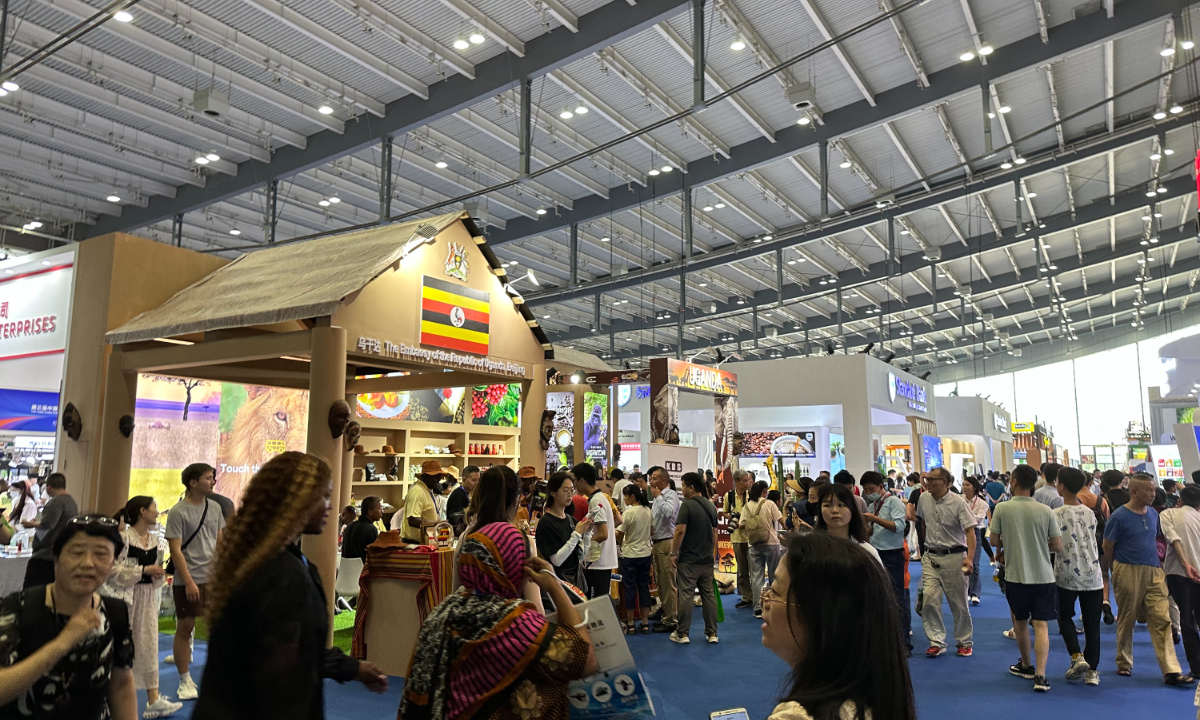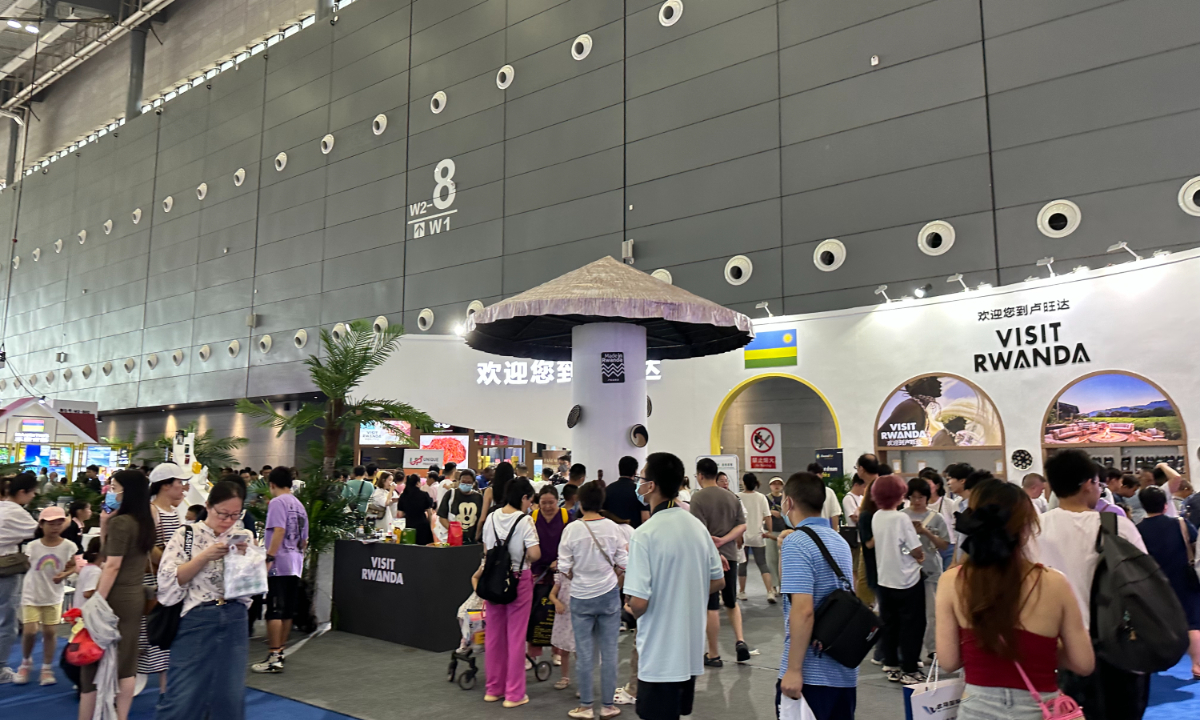Cross-border e-commerce brings more opportunities for China-Africa trade cooperation

Photo: Tu Lei/GT
At the ongoing third China-Africa Economic and Trade Expo in Changsha, Central China's Hunan Province, visitors flocked to different booths representing a number of African countries - tasting red wine from South Africa, sampling coffee from Ethiopia, and snacking on chocolate from Ghana.
The traditional model for trade, which often involves manual placement of orders, is now unable to satisfy the growing trade demand between China and Africa, with cross-border e-commerce becoming another driving force for bilateral trade, which is facilitating booming growth in economic ties.
Mouhamadou Bassirou Pouye, a Senegalese businessman who is engaged in cross border e-commerce has witnessed a rising volume of business over recent years.
With the help of e-commerce platforms, he brought popular agricultural products in his country, including peanuts and coffee, to China, while also shipping goods from Yiwu, the world's largest commodities hub located in East China's Zhejiang Province, to his country.
He has been in China for ten years, and now also serves as the foreign general secretary of the Yiwu China & Africa Business Council.

Photo: Tu Lei/GT
From the beginning of 2016 to date, my business has grown more than 50 percent annually, but partly due to the impact of COVID-19, which made it impossible for customers to come to China, many have turned to e-commerce, he told the Global Times.
He is looking for more customers at the exhibition. "I am planning to spread my business from my country to other markets nearby with more categories," he said.
Hu Juan, general manager of Hunan-based Baishi Dingchuan International Trade Co, a company that imports jewelry from Tanzania, told the Global Times that e-commerce has become an important channel to win new business.
"We are running promotions on some e-commerce platforms such as AliExpress and Tiktok to attract buyers, and then make customized products to customers from home and abroad, including the US and the UK," she said.
Pouye and Hu Juan's stories are mirroring the rapid uptake of e-commerce as a new means of doing business.
Antonio Maria Afonso Pedro, acting executive secretary of the Economic Commission for Africa under the United Nations, said that e-commerce transactions in Africa continue to expand. It is estimated that regional e-commerce transactions are expected to increase by 50 percent by 2025, and online shopping consumers will increase from 334 million in 2021 to 519 million in 2025m representing a growth rate of more than 56 percent, according to the People's Daily in May.

Photo: Tu Lei/GT
On Thursday, the organizers of the third China-Africa Economic and Trade Expo also held an online shopping gala. South African Ambassador to China Siyabonga Cyprian Cwele was seen promoting local tea from his country and explaining the steps in making tea in detail for an online audience, which was highly popular with netizens.
Rising demand also attracted new entrants in the market to e-commerce business in Africa.
Established in Nairobi, Kenya in 2014, Kilimall is the first Chinese company to enter the internet and e-commerce industry in Africa. It is the first Chinese company to set up an overseas warehouse on the continent, and is also the first Chinese company to achieve 100 percent online payment.
E-commerce can greatly promote entrepreneurship and employment in Africa, and also greatly accelerate Africa's industrialization and exports. Every African country has the foundation for building a local e-commerce sector, Yang Tao, founder of Kilimall, said on the sidelines of the exhibition.
At present, more than 8,000 Chinese and African enterprises and individuals have started businesses on the platform, opening more than 12,000 stores, and selling about one million different types of products.
With the increasing prevalence of advanced infrastructure construction and 4G in Africa, combined with the diversified demand of young people on the continent, the development potential of the e-commerce market is huge, Yang added.
It is necessary to strengthen training of local employees, especially to promote the improvement of cross-border e-commerce capabilities and skills of young Africans, Zhong Zeyu, vice president and secretary-general of the China Association of Trade in Services, said at a forum held as part of the exhibition.
"If a group of young people in Zambia received training, they may start a business or build a platform similar to China's Alibaba locally," Zhong said.




